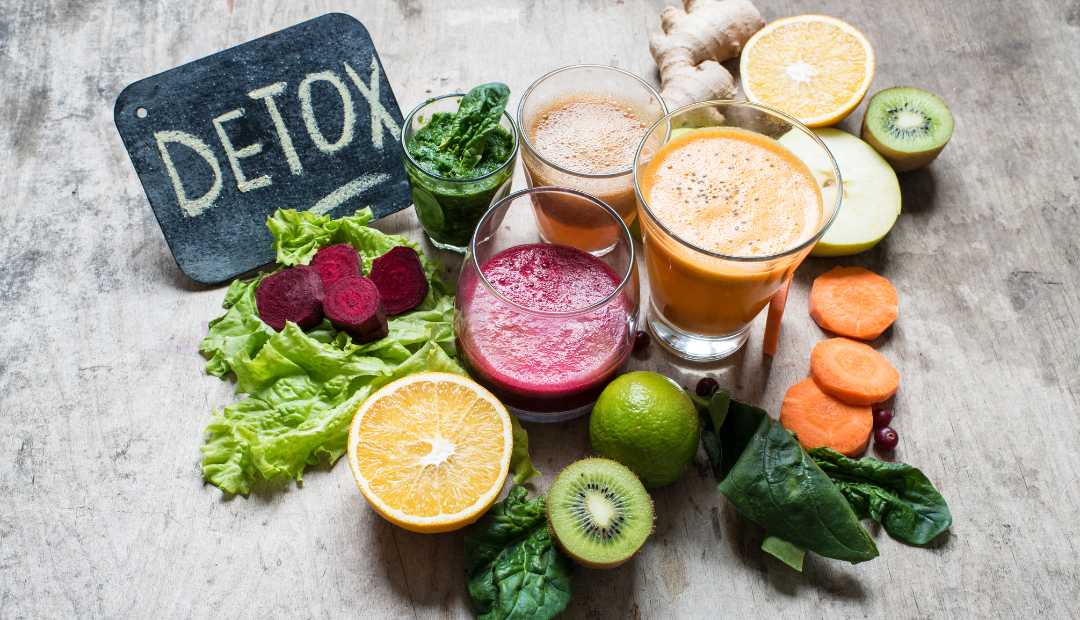In today’s fast-paced, toxin-filled world, it’s no surprise that our bodies occasionally need a reset. From processed foods and environmental pollutants to stress and lack of sleep, the modern lifestyle can overload our detoxification systems. But how do you know when your body is crying out for a cleanse? There are 5 main detox warning signs that you need to know.
This guide explores five major signs that your body might need a detox, the best times to begin one, and how to do it safely and effectively. We’ll back it up with expert insights and research so you can make informed, health-conscious choices.
What Is Detoxification, Really?
Detoxification is your body’s natural process of eliminating toxins via the liver, kidneys, skin, lungs, and digestive system. When functioning optimally, these systems work seamlessly. However, chronic exposure to toxins can overburden these organs, leading to noticeable physical and mental symptoms.
5 Detox warning signs
Constant Fatigue — Even After Rest
What It Means:
If you’re waking up tired despite getting 7–9 hours of sleep, it could be more than burnout. Persistent fatigue is often linked to liver overload, mitochondrial dysfunction, and oxidative stress — all signs your body is working overtime to manage toxins.
Scientific Insight:
The liver plays a key role in detoxification and energy metabolism. When it’s overwhelmed, it can’t break down toxins effectively, resulting in systemic fatigue (Source: Journal of Hepatology, 2014).
What You Can Do:
-
Support liver function with cruciferous vegetables (e.g., broccoli, kale)
-
Ensure proper hydration
-
Avoid alcohol and processed foods during your detox period
Frequent Headaches or Migraines
What It Means:
Toxins such as heavy metals, synthetic chemicals, and food additives can trigger inflammation and affect brain function, leading to recurring headaches.
Scientific Insight:
A 2021 review in NeuroToxicology linked toxin exposure (e.g., BPA, mercury, pesticides) with neuroinflammation, which may impair neurotransmitter balance and contribute to headaches and mood disorders.
Detox Tip:
-
Increase antioxidant intake (vitamin C, glutathione)
-
Eliminate processed sugar and caffeine during detox
-
Try gentle sweating (sauna, exercise) to promote toxin release
Bloating and Digestive Discomfort
What It Means:
A sluggish digestive system often indicates toxin buildup in the gut lining, leading to bloating, constipation, or irregular bowel movements.
Scientific Insight:
An imbalanced gut microbiome — often worsened by toxins and antibiotics — affects digestion, inflammation, and immune response (Source: Gut Microbes, 2020).
Improve Gut Detox:
-
Add fiber-rich foods (chia seeds, flaxseed, leafy greens)
-
Consider a probiotic or fermented foods
-
Avoid artificial sweeteners and processed snacks
Skin Issues: Acne, Rashes, Dullness
What It Means:
Your skin is a secondary detox organ. When the liver or kidneys are sluggish, toxins may be expelled through the skin — manifesting as acne, eczema, or dryness.
Scientific Insight:
The Journal of Clinical & Aesthetic Dermatology (2016) noted that skin issues like acne and dermatitis are linked to systemic inflammation and oxidative stress — both of which can result from toxic burden.
Clearer Skin Through Detox:
-
Stay hydrated to support lymphatic drainage
-
Avoid inflammatory foods (dairy, refined carbs)
-
Support glutathione production (e.g., through N-acetylcysteine or sulfur-rich foods)
Mood Swings and Irritability
What It Means:
Toxins don’t just affect your body — they impact your brain chemistry too. A foggy mind, mood swings, anxiety, or irritability may stem from poor detoxification pathways.
Scientific Insight:
Toxin exposure has been linked to changes in the gut-brain axis and neurotransmitter imbalances, especially serotonin and dopamine (Source: Frontiers in Neuroscience, 2021).
Support Your Mood During Detox:
-
Reduce exposure to plastics, pesticides, and synthetic fragrances
-
Use adaptogens like ashwagandha or Rhodiola
-
Support serotonin with tryptophan-rich foods (pumpkin seeds, turkey)
When to Start a Detox
Detoxing isn’t just for after New Year’s. Strategic timing can help maximize results and improve how you feel.
Ideal Times to Begin:
-
After illness or antibiotics (to restore gut health and immune balance)
-
Seasonal transitions — especially spring (renewal) and fall (preparation)
-
After poor dietary habits or periods of overindulgence (holidays, vacations)
-
When switching to a healthier lifestyle or plant-based diet
-
During high-stress periods or after chronic sleep disruption
Safe and Effective Detox Strategies
While there are many “detox” products on the market, a safe detox focuses on supporting natural pathways rather than extreme fasting or unregulated supplements.
Lifestyle-Based Detox Tips:
-
Eat organic, whole foods rich in fiber and antioxidants
-
Stay hydrated (2–3 liters/day of clean water)
-
Support lymphatic flow through movement and dry brushing
-
Prioritize 7–9 hours of quality sleep
-
Avoid alcohol, refined sugars, and processed foods
Supplements to Consider (with medical guidance):
-
Milk thistle: Supports liver regeneration
-
Glutathione or NAC: Powerful antioxidants aiding detox
-
Magnesium: Supports elimination and reduces stress
-
Probiotics: Help restore gut flora post-antibiotics
⚠️ Important: Always consult a healthcare provider before beginning any new detox regimen, especially if you are pregnant, have chronic health conditions, or take prescription medications.
Final Thoughts
Listening to your body’s signals is the first step toward healing. Symptoms like fatigue, digestive issues, and mood swings are often your body’s way of saying, “I need a reset.”
By understanding the detox warning signs and implementing a balanced, evidence-based detox, you can support long-term vitality — naturally and safely.
References
-
National Institutes of Health. LiverTox: Clinical and Research Information on Drug-Induced Liver Injury.
-
Badran, M. et al. (2021). “The Gut Microbiome and Mood Disorders.” Frontiers in Neuroscience.
-
Pizzorno, J. (2014). “Toxins — The Hidden Cause of Fatigue.” Integrative Medicine: A Clinician’s Journal.
-
Wallace, T.C. (2016). “Antioxidants and Skin Health.” J Clin Aesthet Dermatol.
-
Myers, J.P. et al. (2021). “Environmental Chemicals and Neurodevelopment.” NeuroToxicology.


